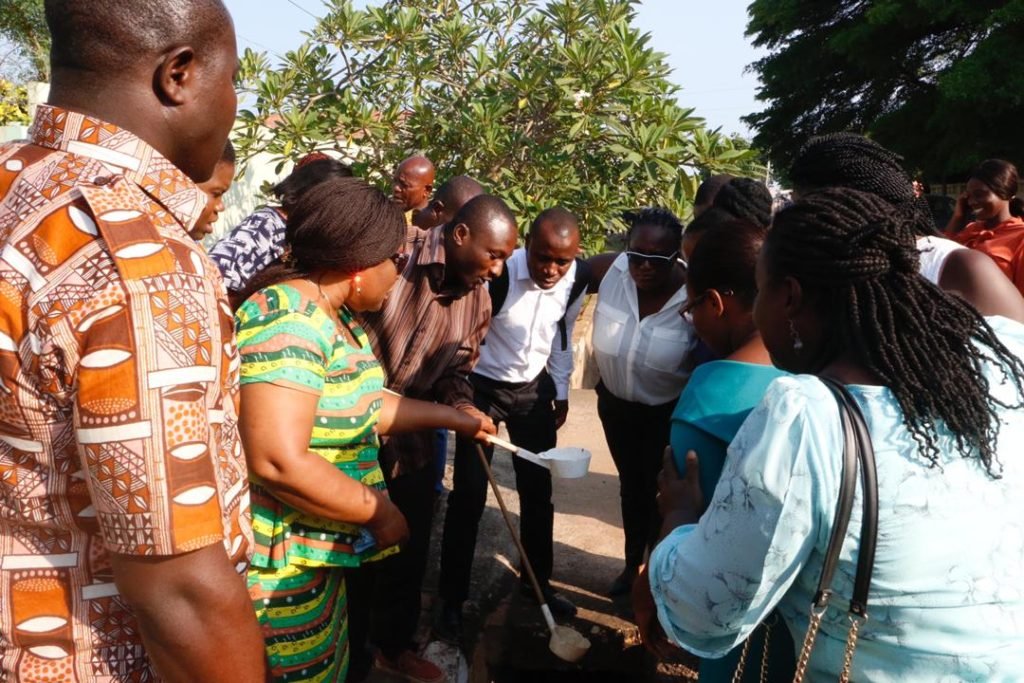Zoomlion pioneers malaria elimination from the source

A New Approach to Malaria Control in Ghana
Ghana is taking a bold step forward in its battle against malaria by implementing an innovative strategy that targets the root cause of the disease: mosquito breeding grounds. This initiative, led by Zoomlion Ghana Limited, is part of a nationwide Larval Source Management (LSM) programme aimed at eliminating malaria entirely.
The programme is under the guidance of the Ministry of Health (MoH) and the Ghana Health Service (GHS), marking a significant shift from traditional methods of controlling the spread of malaria to a more proactive approach focused on eradicating the disease at its source. As a core component of the National Malaria Elimination Programme (NMEP), this initiative goes beyond treating symptoms and focusing on adult mosquitoes. Instead, it emphasizes the destruction of larvae before they mature into biting adults.
Strategies for Effective Mosquito Control
The LSM programme employs a multi-faceted approach to disrupt mosquito breeding cycles. One of the key strategies involves land reclamation, which permanently alters areas where mosquitoes typically breed. Routine clearing of streams and other water bodies helps prevent stagnant water from becoming a breeding ground. Additionally, the targeted use of environmentally friendly biological and chemical agents ensures that mosquito populations are kept under control without harming the ecosystem.
According to a statement from Zoomlion Ghana Limited, the initiative is not just about reducing mosquito numbers but about breaking the chain of transmission completely. By preventing larvae from developing into adult mosquitoes, the programme aims to stop diseases such as malaria and dengue from spreading within communities.
Collaboration and Community Involvement
This effort is not solely the responsibility of government agencies or private companies. It is a collaborative project involving various stakeholders, including the Noguchi Memorial Institute, the School of Public Health, and regional health authorities. These partnerships ensure that the programme benefits from expert knowledge and local insights.
A crucial element of the success of the LSM programme is the involvement of community volunteers. Locals are being empowered to identify and address standing water in their surroundings, making them active participants in the fight against malaria. This grassroots approach fosters a sense of ownership and responsibility among citizens, increasing the likelihood of long-term success.
Benefits of the Source-Based Strategy
The source-based strategy offers numerous advantages. It is a cost-effective method that reduces the need for large-scale insecticide spraying, which can have negative environmental consequences. By minimizing the use of chemicals, the programme also helps preserve the effectiveness of other malaria control tools.
Perhaps most importantly, this approach leads to tangible improvements in public health. Fewer mosquito bites mean fewer infections and, ultimately, fewer deaths from malaria and other vector-borne diseases. The programme’s emphasis on prevention rather than treatment aligns with global efforts to achieve sustainable health outcomes.
Call to Action for All Citizens
Zoomlion Ghana Limited is urging all citizens to join this critical mission. Communities are encouraged to remain vigilant by reporting stagnant water sites, covering water containers, and clearing clogged gutters. These simple actions can make a significant difference in reducing mosquito breeding opportunities.
Officials emphasize that eliminating mosquito breeding sites is directly linked to the elimination of malaria. While the fight against the disease is long-term, they believe that with widespread participation, victory is achievable. The success of the LSM programme depends on the collective effort of individuals, communities, and institutions working together toward a common goal.
By addressing the problem at its source, Ghana is setting a powerful example for other nations facing similar challenges. This initiative represents a meaningful step forward in the global effort to combat malaria and improve public health outcomes.

Comments
Post a Comment